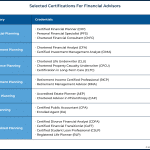The Scope of Work for Finance Graduates
In a rapidly changing business landscape, finance graduates play integral roles in various industries. Their work scope is expansive and dynamic, offering a range of opportunities to build skills, gain experience, and contribute in significant ways to organizational growth.
Diverse Industries and Roles
Finance graduates aren’t limited to banking and accounting sectors. They find opportunities in sectors such as insurance, financial planning, wealth management, risk management, and even non-finance sectors like IT and healthcare. They can work as Financial analysts, Risk managers, Financial planners, Investment Analysts, and more. Each role provides a different perspective on handling fiscal resources, proving just how diverse a finance graduate’s scope can be.
Growth and Ongoing Learning
The scale of work for finance graduates isn’t static – it grows with evolving market conditions and individual professional developments. Graduates often begin with entry-level roles but can navigate their way up to senior leadership roles, such as CFOs or Finance Heads, in their career span. In addition, the finance field encourages ongoing learning, enabling finance graduates to continually expand their knowledge base and stay ahead in the competitive market.
Contribution to Strategic Decision Making
One of the most crucial aspects of a finance graduate’s scope of work includes contributing to an organization’s strategic decision making. They are central to budget planning, forecasting, cost analysis, and generally ensuring the fiscal health of the organization. Consequently, finance graduates often make significant contributions to shaping their organization’s strategy and direction.
Top 5 Industries Where Finance Graduates Can Work
Graduating with a degree in finance open up a veritable treasure trove of opportunities in diverse industries. In today’s post, we will delve into the top 5 industries that seek finance graduates vehemently. Well, if you are a Finance Graduate exploring the best career options for you, this blog will surely be insightful.
 Maximizing Wealth: Essential Guide to Finance Savings and Boosting Income
Maximizing Wealth: Essential Guide to Finance Savings and Boosting Income1. Banking Industry
Undoubtedly, the banking industry tops the list. Traditionally, this industry has been the first choice for finance students across the globe. Commercial banks, investment banks, and credit unions, all seek knowledgeable graduates in finance to handle various Banking Operations, Community Lending, Commercial Lending, and Trust Management.
2. Consultancy Services
Next on the list is the Consultancy Services industry. Whether it’s a Management Consultancy firm, Risk Consultancy firm, or any other consulting business, a finance graduate’s expertise in studying financial records, forecasting and planning can well serve the industry’s demands.
3. Insurance Industry
Insurance is another niche where finance graduates are in high demand. Their knowledge of financial instruments and markets make them valuable assets in this industry, particularly in areas such as Underwriting, Claims Processing, and Product Development.
4. Technology Firms
With the proliferation of Fintech and large technology firms, finance graduates can find promising roles in tech as well. Many Software Companies and E-commerce giants hire finance graduates for roles in Pricing and Cost Analysis, Financial Modeling, and Strategic Planning.
5. Government Agencies
Finally, government agencies are often overlooked but offer sizeable opportunities for finance graduates. Be it the Finance Department, Treasury Department or the Federal Reserve, they all seek professionals with a knack for handling financial matters. A graduate in finance can efficiently manage the Public Funds and Finances, perform Economic Analysis and work on Policy Planning.
 Maximizing Wealth: Essential Guide to Finance Savings and Boosting Income
Maximizing Wealth: Essential Guide to Finance Savings and Boosting Income Unveiling The Truth: Who Is The Father of Finance?
Unveiling The Truth: Who Is The Father of Finance?This list of top 5 industries is by no means exhaustive, but certainly provides a comprehensive starting point for finance graduates exploring possible career paths. Remember, your degree equips you with versatile skills that can be flexibly applied across a range of sectors.
Key Skills Required for a Finance Graduate in Different Work Settings
As a finance graduate, there are certain crucial skills you must possess to be able to excel in varying work settings. These skills are not just based on your academic qualifications, but they extend to the practical, technical, and soft skills that can differentiate you in the highly competitive financial industry.
Practical Skills
The first set of skills a compelling finance graduate should have under their belt are practical skills. These encompass abilities like understanding financial principles, interpreting financial statements, and applying business and economic awareness. An expertise in finance software and platforms is also required, as most businesses make use of programs like QuickBooks, Microsoft Excel and financial modeling software.
Technical Skills
Technical skills are equally important. Graduates should be proficient in analytical reasoning, statistical analysis and possess a firm understanding of financial forecasting. In such roles, you will need to interpret data, possess a strong quantitative aptitude and the ability to recognize trends and patterns that can influence business decisions.
 Maximizing Wealth: Essential Guide to Finance Savings and Boosting Income
Maximizing Wealth: Essential Guide to Finance Savings and Boosting Income Unveiling The Truth: Who Is The Father of Finance?
Unveiling The Truth: Who Is The Father of Finance? Top Proven Strategies: Uncovering Unique Ways to Make Money from Home
Top Proven Strategies: Uncovering Unique Ways to Make Money from HomeSoft Skills
Soft Skills can often be overlooked in such a data-driven industry but they serve an integral role in different work settings. Communication skills, work ethics, problem-solving abilities, and teamwork are key for a finance graduate. These soft skills can be pivotal in networking, negotiating and influencing business outcomes positively.
Job Roles Available for Finance Graduates
In the ever-evolving field of finance, several exciting job roles are available for finance graduates. These roles not only offer promising career growth but also open doors to a variety of specializations and industries. The cornerstone of every organization, the finance sector provides a wide spectrum of job opportunities.
Financial Analyst
One of the most sought after roles for finance graduates is the Financial Analyst position. In this role, graduates have the responsibility of reviewing financial data, creating forecasts, and helping their organization make informed decisions based on their analysis. They are skilled at examining financial records, market trends, and business opportunities to provide strategic advice.
Investment Banker
Investment Bankers are another top choice for finance graduates. This role involves advising companies and governments on how to meet their financial challenges, from raising money for an expansion to navigating a merger. Investment Bankers require a solid understanding of the financial market and excellent problem-solving skills.
Portfolio Manager
The role of a Portfolio Manager presents a challenging opportunity. These professionals are responsible for making investment decisions and maintaining investment strategies that meet specific investor goals. They handle one of the most critical responsibilities in financial firms, managing and monitoring the investments of clients.
 Maximizing Wealth: Essential Guide to Finance Savings and Boosting Income
Maximizing Wealth: Essential Guide to Finance Savings and Boosting Income Unveiling The Truth: Who Is The Father of Finance?
Unveiling The Truth: Who Is The Father of Finance? Top Proven Strategies: Uncovering Unique Ways to Make Money from Home
Top Proven Strategies: Uncovering Unique Ways to Make Money from Home Top Courses to Study to Become a Successful Financial Advisor
Top Courses to Study to Become a Successful Financial AdvisorRemember, apart from these mainstream roles, there are several other opportunities in the finance sector to explore, such as Financial Planner, Risk Manager, and Audit Consultant among many others. The finance industry eagerly awaits fresh talent, making it an excellent field for graduates looking to make a mark.
How to Choose the Right Work Opportunity as a Finance Graduate
When you first graduate with a degree in finance, the world can seem like an overwhelming number of opportunities. It’s critical to choose the right path to kick-start your career. Here, we delve into how to choose the right work opportunity as a finance graduate.
Understanding Your Interests
First, it’s essential to identify your interests and passions within the finance sector. Whether it’s investment banking, corporate finance, or financial planning, knowing what you enjoy can lead you towards the right opportunities. The finance industry is diverse, offering numerous positions that cater to different skillsets and interests.
Assessing the Market
The second step involves looking at the job market. Researching companies, their cultures, and job descriptions can add clarity. Building an understanding of possible employers and positions available, can help you strategize your career goals effectively.
Networking & Internships
Networking is yet another important aspect of job hunting. Connecting with industry professionals, attending seminars, and taking internships, give you a real-world feel of the sector you’re interested in. These experiences not only boost your resume but also provide valuable insights into the work culture and expectations of that field.
